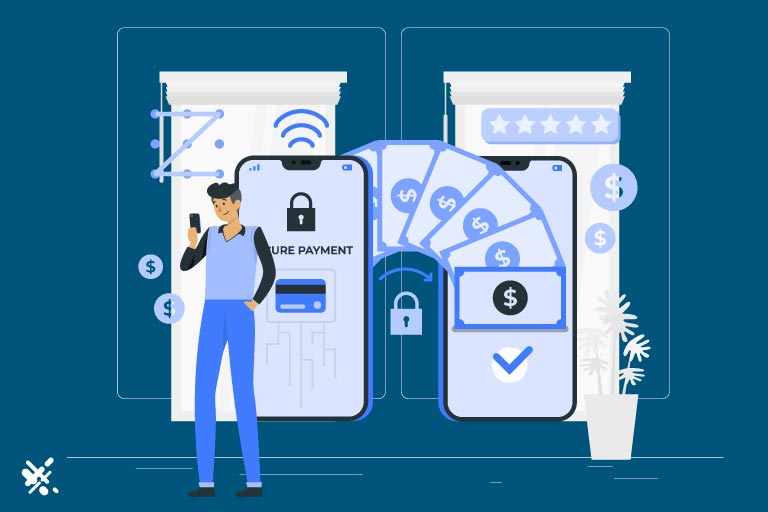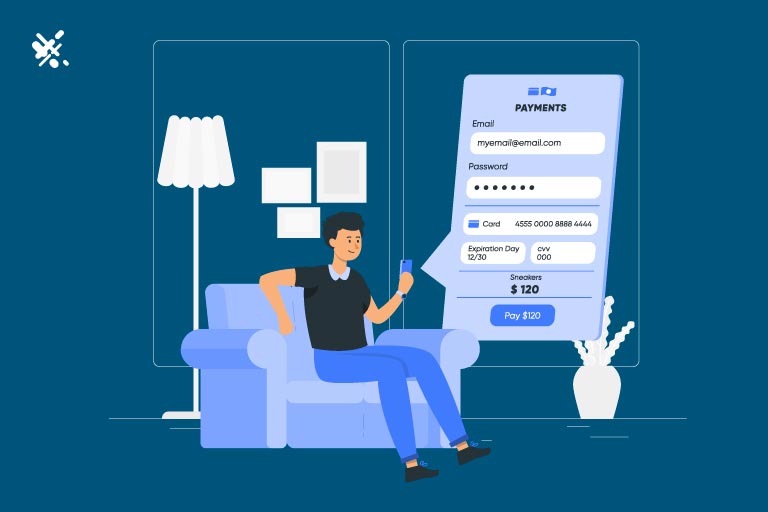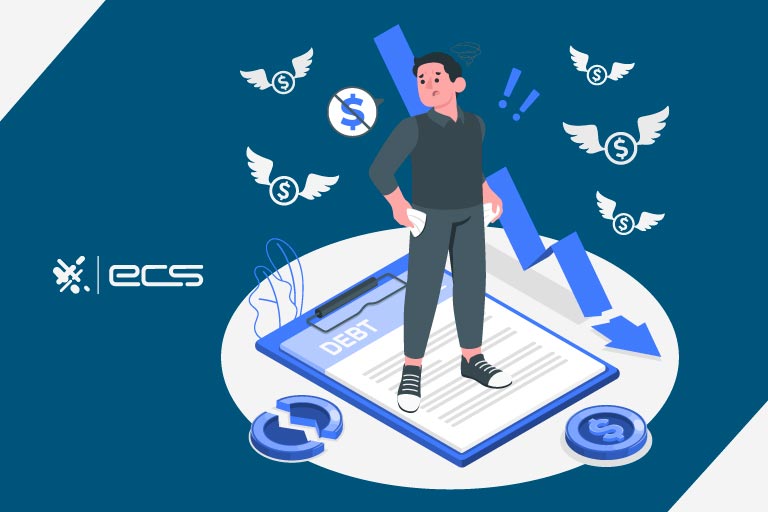Do you own a debt collections business? If so, you know that you’re the one they call when nobody else can get the job done. Collections agencies have a bad rap among consumers, and it’s understandable. Especially since there is often conflation between collections agencies and repossession businesses.
The Debt Collections Industry is a Big Boon to the Economy
But while consumers may be reluctant to pay money they owe anyway (and then some) the collections industry returns sizable amounts of lost capital back to the businesses. Upwards of $102 billion in some years. As such, debt collection agencies are an indispensable part of the economy. Just as much as loss prevention helps the retail industry avoid losing money through the cracks.
The market size of the debt collection industry nearly reached $15 billion in 2020. And falling flat in 2021. Possibly due to the massive $5 trillion in cash-flow stimulus. Leaving plenty over for consumers to spend on Netflix and DoorDash.
But coming out of the Covid Pandemic, with inflation outpacing wage growth, many consumers are arguably in a worse position to combat their debts. It is estimated that the debt collection industry will hit almost $17 billion by 2025, growing at a CAGR of 2.8%.
This moderate growth rate is likely due to the fact that collections are a hard business. The aforementioned $102 billion (itself a large number) is likely no more than 20% of the iceberg. That huge amount left underwater is just one of the reasons that collection agency credit card processing is also a hard game.
The collection and credit collection industry (there are some different sectors, and not everything is about defaulted loans…more on that later) will often need to work with a high-risk payment processor.
B2B and B2C Debt Collections
Collections agencies can help pretty much every type of industry you can think of, in both B2C and B2B contexts. As you can imagine, while the basic premise of collecting a debt is the same (give me my money, please…or rather, give me the money you owe to someone else), the particulars of this pursuit are very different in different industries. And very different in the B2C versus B2B settings.
For starters, B2C collection involves talking to people who are themselves financially responsible for the line of credit or the unpaid bill. B2B collection involves talking to a representative of a company. Often one who does not necessarily feel like their life is on the line.
This may account for the more successful collection of defaulted B2B payments that went to collections, among other reasons (e.g. businesses may have cash in reserve or better access to debt consolidation and restructuring). Nevertheless, let’s take a look at a few different types of debt collection pursuits in broad strokes.
Credit Card Debt
Credit card debt is probably the most common form of consumer debt. Americans are carrying around $6,000 in credit card debt on average, and some estimates suggest $15,000 per household.
These numbers are likely to keep increasing as more and more consumers must choose between gas and groceries due to rising inflation. Many times a creditor will put their own in-house effort into collecting a debt for up to 90 days, before passing it off to a collection agency to try their hand at it.
Medical Debt
Another common source of collections is medical bills. The sad truth of the matter is that around 100 million adults (41%) in this country have healthcare debt. 12% of them (12 million people) owe at least $10,000.
In these cases, HIPAA compliance is another consideration. HIPAA-compliant credit payment processing cannot involve a debt collection agency discussing the particulars of a debtor’s medical history. If that would come up for whatever reason.
Student Loan Debt
Student Loans are a third source of debt collection. More than 50% of students graduate with student debt, at an average of almost $29,000 per borrower. Federal student loans do not have a statute of limitations.
Meaning that the collection amount can be pursued until the borrower pays it. Private student loans do have a 3-10 year statute of limitations, beyond which collectors cannot pursue the debtor.

Mortgages and Vehicle Loan Debt
You might be wondering: what about car loans and mortgages? These are secured forms of debt with underlying collateral. By contrast, credit card debt, student loans, and medical bills are forms of unsecured debt.
With secured debt, if the lender feels like they can’t get their money back, they’ll take the underlying collateral. Which means home foreclosure or car repossession. This means that debt collection is (often) not a business necessity.
Store Credit Cards
Store credit and debit cards are other sources of collection accounts. Typically merchants offer these to consumers at the point of sale. They present special perks when used in the store. And many of them can only be used in the store.
Which is part of their immediate appeal for the current transaction. Store credit cards are also (arguably) the easiest types of unsecured debt to get. As stores can be aggressive about using this marketing strategy and willing to take risks.
These lending risks are more than made up for by the punitive APR these cards carry. Consumers can go to town at their favorite store and quickly rack up significant amounts of debt. If the debt is tied to a broader picture of poor money management, the consumer may default on their store credit cards while paying those bills that seem to matter more.
This, of course, results in the merchant attempting to collect their money. If enough time goes by, they’ll outsource it to a collection agency, who may add their own fees. In all the above cases, these different types of debt may involve different considerations in terms of how the debt is collected.
For example, private student loans have statutes of limitations. While discussion of medical debts must obscure the reason the debt was generated. These concerns will shape how debt collectors pursue their work.
But nonetheless, debt collectors do face some common issues. And these issues are what can make finding a payment processor difficult.
Chargebacks May Be Common
The debt collection industry may also see a higher degree of chargebacks than other industries. A consumer may be willing to engage with debt collection companies and agree to pay the collection. But obviously (in most cases) there is a reason why their missed payment went to a debt collector in the first place. Once the phone call is over and the reality of their financial situation sets in, they may change their mind.
They may call their bank or credit card company and initiate a dispute about the collections payment charge. Aside from the fact that a significant amount of consumers initiate disputes with their card company—instead of the merchant—an additional factor, in this case, may be that the disputant is ashamed to confront the payment collections company directly. Or may be concerned that even if they did, they could not wriggle out of the arrangement.
Why Payment Processors Don’t Like Chargebacks
Unlike returns, refunds, exchanges, and cancellations, chargebacks initiate a cavalcade of fees, fines, and penalties that hit everyone in the payment ecosystem. Ultimately, the merchant is passed down these pecuniary punishments. But they still impact the other parties to the transaction—the banks, the card networks, and the payment processor itself.
Payment processors will refuse to work with companies that experience a high degree of chargebacks. Often that figure hovers around 100 chargebacks a month and/or 1% of the total transaction volume. This is actually a fairly low threshold. And for an industry like payment collection services, it may not be hard to surpass.
Even if an individual payment collector has a very high success rate, the industry as a whole is not so successful. That is, it’s successful enough to return a decent amount of lost capital back to the business that lost it. But $0.07 for every dollar in the B2C setting won’t come back. That includes defaulters who changed their mind, after agreeing to pay something back.

Installment Plans, Subscription Billing, and Chargebacks
Another reason that collections credit card processing is subject to chargebacks is that debt payment companies may set up repayment in the form of a subscription service. Customers (the defaulters) have already expressed an inability to settle their tab, so debt collection payments in the form of installments make it more manageable.
Unfortunately, it also makes it more likely for an agency to suffer a chargeback. Subscription services in general are rife with chargebacks for a variety of reasons. One is that a customer may simply forget what the charge on their bank statement is.
Another is that (upon realizing what it is and) upon attempting to cancel, they discover that they’re too late to cancel the most recent installment. Then they decide to cancel it with the bank instead.
A similar circumstance may occur with debit or credit card payments set up to settle a debt. In this case, the customer (defaulter) may even know what the charge is, and still decide to cancel it. There was a reason they couldn’t pay the collection amount in full in the first place.
If they’ve fallen into hard times again, they may see credit and debit card automated payments as a convenient expense to cut off. Preserving cash for on-hand expenses like gas, groceries, and housing payments. That leaves the collection agency high and dry, of course.
Subscription Services are a Must-Have for Debt Collectors
Since we’ve wandered into a discussion about subscription services vis-a-vis the Achilles Heel of debt collection, we should not mention that such an arrangement is also one of its strengths. Many debtors may wonder how to pay credit collection services.
So, a payment processor that offers debt collection software or integrates with such software to accept online payments is a must-have for a debt collector. Giving more flexibility to cardholders.
One reason is customer experience. Debt collection agencies are famous for bombarding customers with mail and phone calls. While they are only doing their job, it can create a negative customer experience.
Building resistance to picking up the phone and making that call. One easy solution is to direct the customer to a payment processing portal. Here, the debtor can create a manageable payment plan for the collection amount.
Chargebacks Due to Bankruptcy
Returning to conclude the conversation about chargebacks, a final reason for their appearance in the collections venue is bankruptcy. This is especially true for debt-related collections like a credit card collection agency.
If a consumer has set up a payment plan, but then decides to file for bankruptcy to clear out their debt (which is a smart decision on their part), they are no longer obligated to keep on paying their creditors.
And given the emotional turmoil and lifestyle upending that occurs with bankruptcy, it’s unlikely that the customer will remember to reach out to the collector personally. Even if they remember, they might not want to.
There’s a decent chance they’ll just call their bank or credit card company and cancel the monthly charges. These bankruptcy-induced chargebacks are likely also a significant contribution toward the 80% of consumer debts that don’t get collected.
Company Culture and Employee Churn Tarnish the Debt Collection Industry Reputation
The collections industry is competitive. There are an estimated 3,200 collection businesses in America, operating around 3,500 sites. The 50 largest companies capture around 52% of the revenue.
Leaving the other 3,150 companies to fight over the remaining 48%. Single-unit operators capture around 35% of the revenue, down from 45% a few years ago. A trend that indicates increasing pressure on the smaller fish in the pond.
All the same, the average office is generating $4.2 million in revenue, up from $2.3 million in 2007. There might be a few factors behind that number. Such as in the implosion of collectible consumer debts in the wake of the 2008 Subprime Mortgage Crisis and the subsequent Great Recession. But it also reflects the fact that the agencies that stay afloat are working hard.
Moreover, the success rate in the industry averages 20-30% in the B2C sector. Although it is much higher in the B2B sector (some estimates hovering around 80%), it’s still not perfect. An agency is not only fighting an uphill battle against recalcitrant borrowers—it’s competing against other companies fighting the same battle.
Why Does This Competitive Environment Matter to Payment Processors?
Like any high-stakes, high-stress industry, the collections industry is rife with employee turnover. Add the underlying emotion most individuals have about collecting money from other people experiencing financial stress, and you have a high-churn recipe. If you’re wondering why a payment processor cares whether or not a company is a revolving door in terms of human capital, consider the bigger picture.
Companies that have a hard time retaining human talent may have a hard time staying open. Moreover, in a business such as collections—where the lifeblood of the business is collecting overdue cash flow—continuity in the process is incredibly important.
Disruptions in the workflow can translate to lost revenue. Making it unprofitable for a payment processor to invest time, money, hardware, and their own human capital (e.g. support services and an account manager) in such a venture.
Taking all these factors into consideration, it’s becoming easier to see why Tier 1 banks are reluctant to work directly with collections agencies. And why (consequently) payment processors regard them as high-risk.
Debt Collections Agencies Are Fighting a Generally Negative Industry Reputation
Debt collection can also be fraught with leg complications. One interesting source of this potential risk is the fact that a company can actually sell its debts to a third party. This allows them to write off the debt as a loss, and at least be sure of collecting some money.
This third party now owns the debt. And they may have an entirely different set of procedures and policies for collecting it—some of which may be more aggressive, such as adding fees and penalties.
It’s possible that legal issues can arise from such a sell-off of the debt to a third party. If the debt is tied to some underlying asset (such as property, whether real estate or moveable property), there may be other parties with a lien on the asset who will contest the transfer of the debt to an indirect collector.
As you can imagine, this has the potential to become one big legal headache and a massive nothing-burger for the parties involved in collecting the money. And in fact, perhaps worse than nothing, but a financial judgment. The whole ordeal is something that financial institutions would love just to stay away from in the first place.
Fair Debt Collection Practices Act (FDCPA)
In the olden days, there was a special place called a debtors’ prison. It’s where those who owed money and couldn’t pay up went. Sometimes they would be placed in stockades for public humiliation. Imprisoned debtors would be forced to engage in certain types of indentured servitude or serfdom until their debt was paid off.
These practices were abolished in 1833 (in America). But there are still certain business practices that have given the collections industry a bad reputation. Hence the FDCPA was passed in 1977.
Some collectors have posed as representatives of a government agency, law enforcement, or even a credit bureau. In 2014, the owner of a Georgia collections agency, Williams, Scott & Associates, and six of his employees, were arrested for posing as U.S. Marshalls and the Department of Justice.
Debtors were told they had been accused of fraud and would go to jail if they didn’t pay their debts. Interestingly, this strategy tells you they were praying on disadvantaged consumers who were unaware of some basic tenets of credit law.
That said, it is still possible to get arrested for matters related to outstanding debt. If a judge issues a subpoena to appear in court over a debt-related matter and the debtor does not show, that can result in a warrant for arrest due to their failure to appear when summoned.
However, there is no direct tie between the arrest and the debtor’s outstanding balance. And any debt collectors threatening arrest are engaging in unscrupulous and illegal practices.
More Debt Collection Do’s and Don’ts
To the surprise of many, debt collectors do have some leeway to track down debtors. They can ask third parties about information like phone numbers, addresses, and places of employment.
But they cannot ask about anything else (such as the debtors’ favorite restaurant or the time they get off work). And they cannot contact the providers of this information more than once.
Debt collectors cannot discuss debt with anyone other than the debtor, their spouse, or their attorney. Yes, debt collectors can contact spouses. So those attempting to keep certain debts secret may have to work on relational issues on top of taking care of their debt.
But aside from these people, debt collectors cannot discuss your debt with anyone else, and they can’t make it public. They cannot, for instance, take out an ad in a publication on behalf of a local or regional bank and list the names of people who are late on their credit card payments.
As a side note, the government can actually list the names and addresses publicly of those who are late on their taxes. The definition of “late” varies from state to state.
But once a name is in the paper, their unpaid taxes are for grabs. They will then owe these unpaid taxes to whoever purchases the tax lien. And if they can’t pay up, your property is at stake.
More Spurious Debt Collection Practices and Why They Matter
Debt collectors also cannot be vague about how much and who you owe. Within five days of contacting you, they must send you a written notice of how much you owe, to whom, and how to make your first payment.
Remember that debt collection is passed on to a third party and some debts are even sold off to third parties. Because of this, the debt collector may have incorrect information. They may also be trying to collect a debt that has been discharged in bankruptcy.
Debt collectors cannot harass debtors. Meaning there can be no:
- Threats of violence or harm
- Use of obscenity or profane language
- Repeated calls
- Calling before 8:00 AM and after 9:00 PM
Additionally, debt collectors cannot contact debtors at work if they are asked to stop. In fact, they cannot contact debtors at all if the debtor requests as much in writing or requests that they only contact their attorney.
Some debt collectors have even stooped as low to fabricate documents to build a lawsuit against the debtor. Debtors who receive lawsuit notifications should contact the court directly, not the debt collector, to verify the nature of the lawsuit, so they know how to approach it.
You might be wondering why we’ve gone into this detailed (but hopefully) interesting list of debt collection faux pas. If you’re like most debt collection agencies, you’re not sending a seven-foot, 350-pound goon to let debtors know how and when they can make their first installment payment.
But unfortunately, such collection firms do exist, and their actions can create legal complications. And as mentioned, payment processors want to stay far away from trouble.
There is one caveat that we should mention. That is that some of these rules and restrictions do not apply to in-house collections. For this reason, merchants with a significant sales volume should equip themselves with payment collection software that offers the flexibility to break payments into installments.
But if they have already contacted a debt collection agency, there is a decent chance the merchant has already spent several weeks or months trying to get their money back.

What Kind of Payment Processor Do Debt Collectors Need?
So now it’s time to bring it home. Debt collectors will (in most cases) not be able to use a normative payment processor. Especially a large aggregator like PayPal. That’s because:
- Debt collection as an industry may be subject to chargebacks
- The individual businesses themselves may be somewhat unstable
- The industry as a whole has a bad reputation that is sometimes linked to legitimate legal concerns.
Debt collectors will need a high-risk payment processor. Such a processor can offer them compliant payment processing, hedging their own risk in the venture with slightly higher transaction fees on occasion, the collateral of a rolling reserve.
A rolling reserve is when the merchant must keep a certain amount of cash on hand with the payment processor. Who can then use it to settle any chargebacks that occur immediately.
Online Payment Gateways and Good Customer Service
This payment processor, in accordance with best practices, should also offer online payment for collections. Or a gateway that can interface with credit and collection software.
This is because given the sensitive nature of the payment and what it means to consumers, there is a greater likelihood they will pay collections online if it is discreet and easy.
Another important consideration for a collections agency is to work with a payment processor who can provide them with a dedicated account manager and/or offers responsive customer service.
If there are any issues with the gateway for payment of online collections, for instance, with good and responsive customer service the issue can be resolved immediately and you can keep on collecting what you are owed.
To contact sales, click HERE. And to learn more about ECS Payment Processing visit Credit & Debit.
